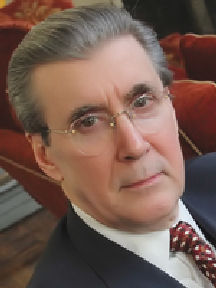Here are books I recommend political junkies read while sunning at the beach:
“The Great Revolt: Inside the Populist Coalition Reshaping American Politics” by Salina Zito and Brad Todd
If you want to learn why working-class Democrats in “fly over country” feel unwanted in their party and why they embraced Donald Trump, The Great Revolt is the book to read.
The authors interviewed scores of people on the ground and performed an intensive survey of 2,000 Trump voters in Ohio, Pennsylvania, Michigan, Iowa and Wisconsin.
They learned that the attitude of voters who coalesced to give Trump his electoral college victory, was best summed up by a nurse in Michigan, “We spent all of our lives doing the right things; we pay our taxes, we give back to our communities, we volunteer at our churches, coached or served on the PTA at our kids’ school. And we voted for President Obama and still we are ridiculed. Still we are considered racists. There is no respect for anyone who is just average and trying to do the right things.”
“The Great Revolt” explains why the pundits, the polls, the media, and Clinton’s highly paid technology data geeks got it wrong.
“The Revolution of ’28: Al Smith, American Progressivism and the Coming of the New Deal” by Robert Chiles
One hundred years ago this November, Alfred E. Smith was elected governor of New York. During the four terms he served as the state’s chief executive, he was not embarrassed, unlike most progressives, to deal with politicians and to bargain for programs that enhanced the quality of life of New York’s downtrodden.
His record was remarkable: hospitals were built to help crippled children, the deaf and blind, tuberculosis patients and disabled veterans. He built a state health laboratory, asylums for the mentally ill, a state teachers college, a network of parks and beaches from Long Island to Niagara Falls.
Social legislation he enacted eliminated sweatshops, regulated child and female labor, created workmen compensation and established the forty-eight-hour work week.
Although Smith lost to Herbert Hoover in the 1928 presidential election thanks to vehemently anti-Catholic voters in the South and Southwest, Chiles argues persuasively that the Smith Revolution was the basis of the New Deal Revolution.
He agrees with analyst Kevin Phillips, who observed: “Even before the Great Depression, Smith sparked a revolt of the urban ethnic groups which foreshadowed the makeup of the New Deal coalition.”
“The Age of Eisenhower: America and the World in the 1950s” by William I. Hitchcock
After years of neglect, historians are paying attention to the 34th president, Dwight D. Eisenhower.
There is now a consensus, as Hitchcock points out, that Eisenhower “was a masterful president guiding the nation through the great crisis of the 1950s, from McCarthyism and the Korean War, through civil rights turmoil and Cold War conflict.”
During his eight years in office, Eisenhower managed to keep the peace, balance federal budgets and guided an economy that doubled average family income.
“America in the 1950s,” Hitchcock reports, “enjoyed a higher standard of living than any previous generation in the nation’s history.”
Eisenhower’s achievements explain why his approval rating averaged 65 percent. He was more popular than the two-term presidents that followed him — Reagan, Clinton, Bush and Obama.
“LBJ’s 1968: Power, Politics and the Presidency in America’s Year of Upheaval” by Kyle Longley
Fifty years ago, our nation witnessed racial conflict, Vietnam War protests, assassinations, and radical-led riots at the Democratic National Convention in Chicago.
While much has been written on the 1968 cultural revolution, there has been little commentary on how President Lyndon Johnson handled these crises during his last year in office. Kyle Longley fills that void by taking readers “on a behind-the-scenes tour of what Johnson characterized as the ‘year of continuous nightmares.’”
Longley describes the tragic events of 1968 through LBJ’s lenses. “Understanding the tumultuous year and the responses of Johnson,” Longley concludes, “provides Americans insights into what has transpired and how tragic years like that one shaped our current political discourse, often for the worse.”
Happy reading!



